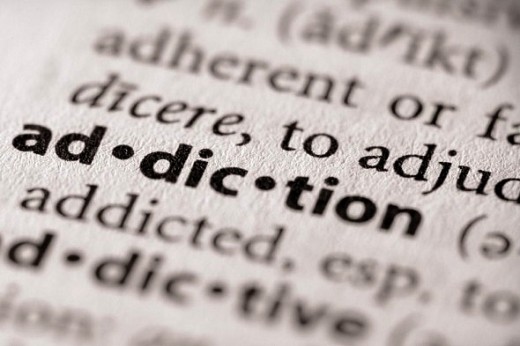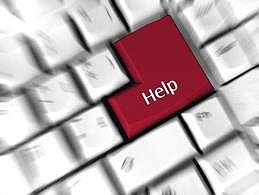Signs of Addition Similar with Marijuana, Gambling, Food, Other Things
While drug addicts develop a physical dependence, addiction is reality more about thinking and behavior, not the actual substance or the activity of taking drugs. It is true that you can become addicted to almost anything.
This article explores why people are prone to becoming addicted and what to look for to prevent excessive enthusiasm from becoming an addiction. In Australia there is a huge debate about how to deal with problem gambling, especially poker machines in clubs and pubs. This debate has highlighted some of the issues.
We all can become very enthusiastic about things and spend more time doing them. The fundamental threshold between excessive enthusiasm and an addiction or a compulsion is that enthusiasm is beneficial and adds to the enjoyment of life and can be fulfilling whereas addiction can become an all consuming compulsion that can destroy lives.





Behaviours become addictive when they consume more and more of a person's life and they become the only way of 'feeling better'. People may have to do more and more of the activity over time to get the feel-good effects. People may experience physical and psychological withdrawal symptoms if they try to stop or reduce the activity. This compulsion may cause problems at work, and destroy families and personal relationships.
What are the Symptoms and Signs of Addiction?
Obsession - Thinking about, and planning obsessively, for your next session is one of the signs of addiction. This many begin innocently enough with frequent thoughts about the activity that you are obsessed about. This usually means frequent planning of your next session or “fix” which may eventually become an all consuming re-arrangement your life in ways that feed your addiction. Obsessive thoughts about your addictive activity replace rational thinking about the consequences. Obsessive thoughts about an activity is the gateway to the pathway of addictive thinking.
Negative Consequences - Excessive enthusiasm starts to becomes a problem when it begins to have negative consequences in your life, even though you may not admit it. Generally this starts by your enthusiasm growing innocently enough. You obviously enjoy and benefit from the activity otherwise you wouldn’t be doing it. Drugs work by making someone oblivious to their problems and perhaps their loneliness. Other activities such as gambling may be an escape in some way. As the obsession grows it will eventually start to have negative impacts on their lives. But the addict keeps going anyway and ignores the impact. There are many ways in which addictions can negatively affect lives.
- Relationships
- Psychological Health
- Work
- Finances
- Decision Making
- Physical Health
Lack Of Control - This simply means that despite the negative consequences if you recognise them, the addict effectively has no control over stopping this behavior. Addicts often have good intentions, but are either are either totally out of control or are ttying to exert controls but fail.
Persistence and Inability to Stop - Addictive behavior is persistent. When someone is obsessed, they will continue to engage in the activity, despite the trouble it is causing them, whether they recognise it or not. So weekends of self-indulgences doing various activities is not necessarily addictive behaviour, although it may cause other problems. Addiction involves continual engagement in the behavior beyond a weekend obsession or excessive enthusiasm.
Denial - This a classic symptom of addiction. The major forms of denial are:
- That their addictive behaviour is a problem that they cannot control.
- That their addictive behaviour is having a negative impact on their lives and that their addiction is the cause.
Common forms of denial include:
- Absolute Denying - "No, I don't have a problem."
- Blaming Others - "Sure I do it, who wouldn't if they had my wife/boss/kids/etc."
- Avoiding the Subject All Together - Ignoring it, refusing to address it, or distracting others from the subject
- Minimizing - "It's not that bad."
- Rationalizing and Intellectualising - "I'm not as bad as Joe" or "Cocaine is not that addictive anyway."
The worst effect of denial is that it prevents the addict from correcting the behavior. The denial stops the addicts recognising that they have a problem and the consequences. One of the biggest hurdles during recovery and rehabilitation is that denial starts to creep back into the addict's thinking.
Types of Addiction - Can we get Addicted to Anything?
If behaviours like gambling are genuine addictions, people can, and do become addicted to various other activities like work, eating, video games, or exercise. What these activities have in common is that the person doing them finds them pleasurable in some way at least at the start and that the person becomes enthusiastic about the activity. These non-conventional activities like other addictions may lead to conflicts at work and failed personal responsibilities and major problems with life in general.
The health, social, family and community costs of problem gambling are good examples. The traditional affects of addictions including relationship problems, moodiness, absence from work, poor performance, domestic violence, and bankruptcy.
The health effects for gamblers, their loved ones and their partners include depression, anxiety, migraine, insomnia, alcohol abuse, smoking, stress related disorders, intestinal and eating disorders, stomach problems, and suicidal thoughts.
Research on pathological gamblers has shown that they suffer at least one physical side effect of withdrawal, including loss of appetite, physical weakness, headaches, breathing difficulty, heart palpitations, muscle aches,insomnia, and chills.
Problem Gambling Debate in Australia
Gambling in Australia - For most Australians, gambling is a type of entertainment that many people love, that includes occasional bets on races, football games, buying a lottery ticket, a night out at the casino or playing the poker machines at their local club or pub. In 2009, surveys showed that about 70 % of Australians gambled in some way. The money spent on gambling is huge and is a major source of revenue for the clubs and governments through taxes. In 2008-09, Australians spent almost $20 billion on gambling activities with around 60% being sent on poker machines.
Problem Gambling - It is estimated that up to 500,000 Australians ( 2% of the population of $22 million are problem gamblers or are at risk of becoming gambling addicts. The impact is magnified because of the flow-through effect of each single problem gambler negatively impacting on the lives of up to 10 others and so up to 20% of the population is affected. The social cost of problem gambling is about $4.7 billion a year.
Poker Machines and Problem Gamblers - About 15% of people who play poker machines regularly has a serious addiction, with the average problem gambler losing about $21,000 each year (about 30% of their salary). Modern poker machines can consume vast amounts of money very quickly and the technological advances has fed the addicts obsession. It is no loner a matter of inserting coins into the machine one at a time, but with multiple bets and credit card feeds a gambler could lose more than $1,500 in just one hour.
Social Impact of Problem Gambling - It is known that problem gamblers are 6 times more likely to be divorced and are 4 times more likely to have problems with alcohol than non-gamblers. Children with problem gambler parents are 10 times more likely to become problem gamblers themselves than those with non-gambling parents. The harmful effects of gambling include financial ruin, neglect and abuse of children, general domestic upheaval including separation and divorce, poor mental and physical health, crime issues, including fraud, stealing and misappropriation of funds. There are increased rates of unemployment, violence, employment performance issues, and in extreme cases suicide.
How can Problem Gambling Be Controlled - There are various voluntary systems and advice offered to problems gamblers where they gamble. The clubs and pubs in Australia and fighting a major lobbying and political campaign against the proposed controls on poker machines listed below:
- Pre-commitment systems - The most controversial control system being considered in Australia is a pre-commitment system. Using simple card-based technology, pre-commitment requires people to think about how much they want to spend gambling and to set appropriate limits before they start playing. The poker machine, into which they insert their card, will show the pre-set dollar limit and the time spent playing the machine. Voluntary re-commitment and various options are being considered.
- A maximum bet limit of $1 per spin. Most modern poker machines in Australian clubs and pubs can accept bets from $1 to up to $10 per spin. These loaded spins can be done over and over again every 2 seconds or so, This means that one poker machine can take up to $1,200 per hour from an individual player. Players insert up to $10,000 into a machine for a single session. Australia is almost unique in the world in permitting the saturation of local clubs and pubs with large numbers of such high impact games, and it is the combination of ubiquity and high impact that makes the current Australian situation so dangerous.
- A load up limit of $20. Limiting the amount of money that can be loaded into a machine at any one time will not affect recreational gamblers but will slow problem gamblers down.
- Jackpots of no more than $500. Limiting jackpots reduces the volatility of the machines and therefore their addictiveness. Maximum prizes from one machine are $10,000 and this can be greatly increased is there are linked jackpots between machines).